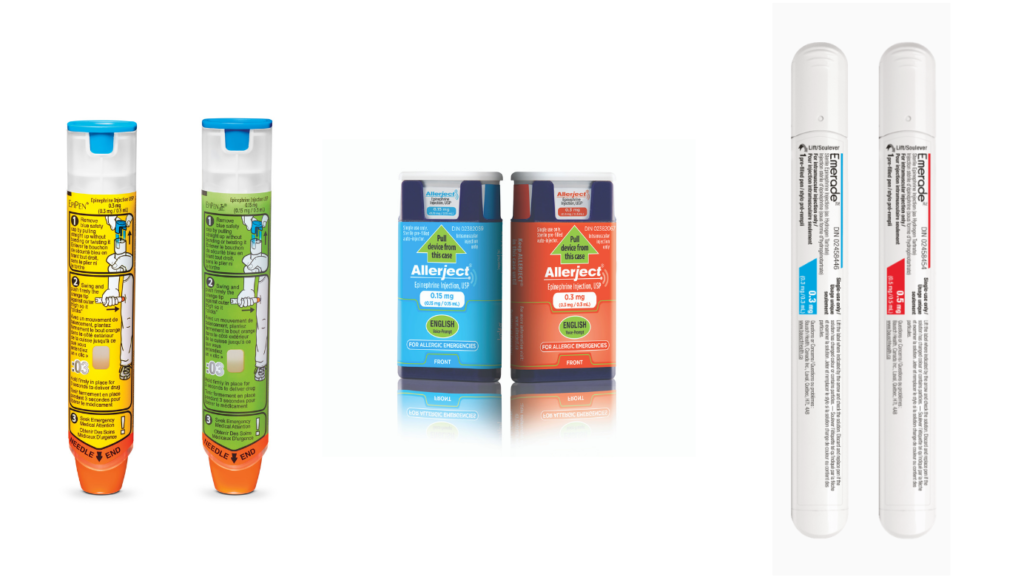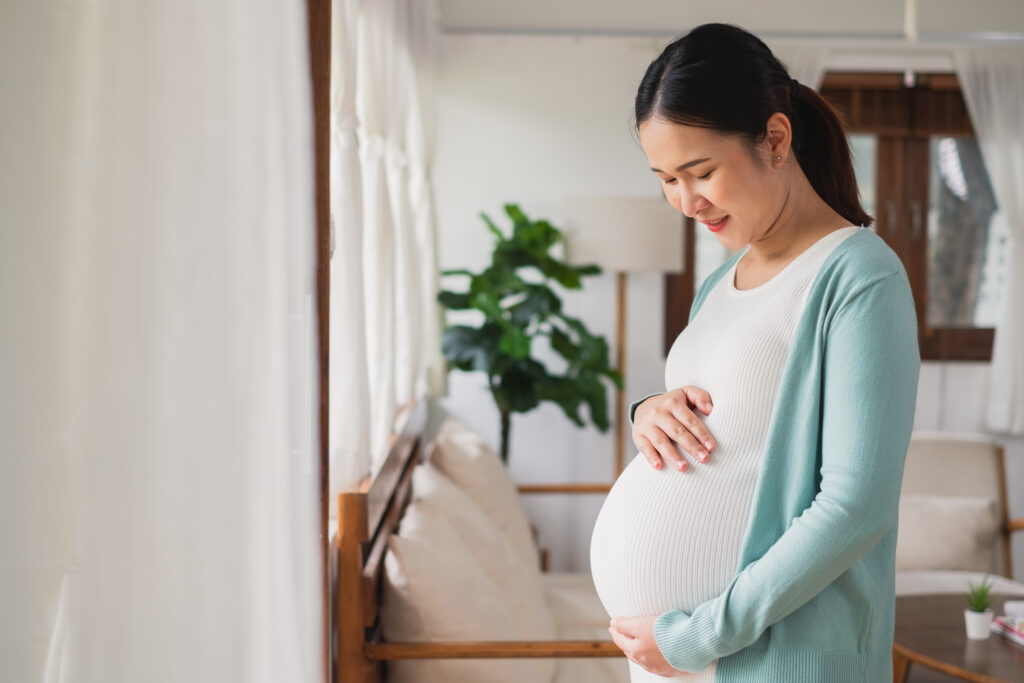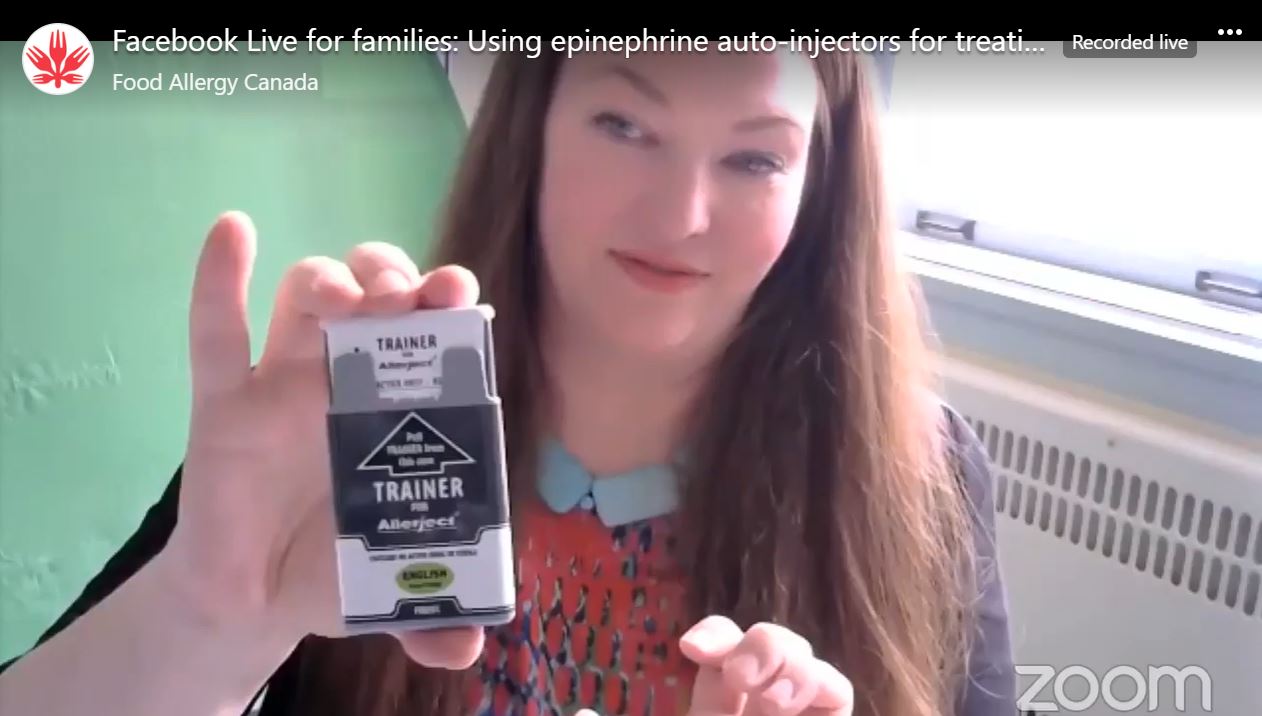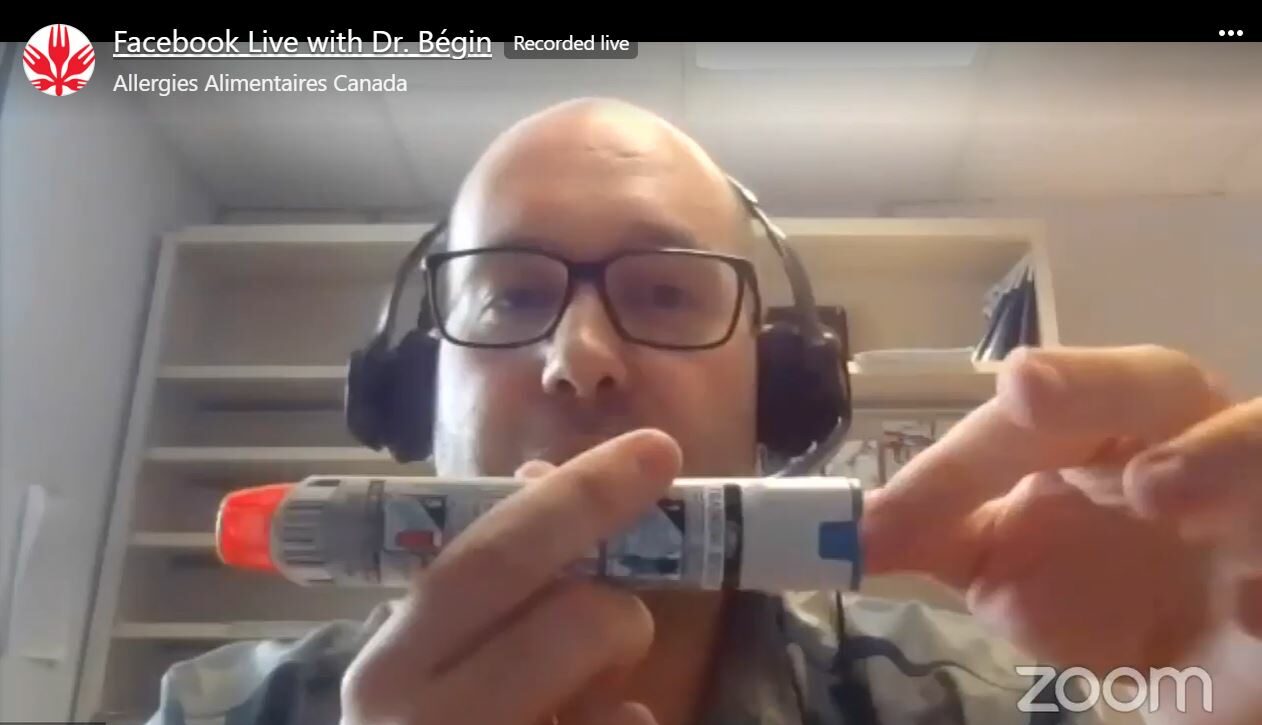
Ask the allergist is a regular feature in our newsletters where Canadian allergists answer your questions!
Dr. Julia Upton is on staff at the Hospital for Sick Children in the Immunology and Allergy Department; and an Associate Professor in the Department of Paediatrics at the University of Toronto. She is the past Section Chair of the Anaphylaxis and Food Allergy Section of the Canadian Society of Allergy and Clinical Immunology. Dr. Upton is also a member of our Healthcare Advisory Board.
Please note: Dr. Upton is answering as an individual allergist and her answers do not constitute an official position of her affiliated organizations. Her responses are for informational purposes only and do not constitute specific medical advice, recommendations, diagnosis, or treatment. Please talk to your doctor about any concerns or questions you may have regarding your own health or the health of your child.
This month she answers questions on addressing a child’s concern about the use of their epinephrine auto-injector, and treating an allergic reaction during pregnancy.
Q1. How can I address my 8-year-old daughter’s concerns about her epinephrine auto-injector? She’s afraid of it.

There are several things you can do to ease your daughter’s concerns and help address any fear or anxiety she may be feeling about the use of a device.
First, order an epinephrine auto-injector training device for practice (they do not contain medication or a needle). This is something that I regularly suggest to families.
Personally, I’ve told kids, “If you had an allergic reaction and doctors were with you, do you know what they would do? They would use epinephrine. With an epinephrine auto-injector, you have the best medication for treating anaphylaxis right there and it’s ready to use. Let’s practice with the trainer.”
You can also give a child a different perspective by practicing on another person, or even a doll or stuffed animal. With some kids, it can be less scary for them to practice helping someone else. If they do not want to hold the trainer, they can get used to it by telling someone how to do it. For example, a parent can hold the device and the child can tell them how to use it on themselves.
Regular practice with a trainer can help parents, kids, and others become familiar with it.
For more information
Watch recordings of our Facebook Live sessions for families: Using epinephrine auto-injectors for treating anaphylaxis and teaching children to use them with Dr. Julia Upton (English) and Dr. Philippe Bégin (French).
Q2. How do you treat an allergic reaction during pregnancy? Is it safe to use epinephrine?

Yes, an epinephrine auto-injector can be used during pregnancy to treat anaphylaxis. In pregnancy, we take extra vigilance in reducing the chances of an allergic reaction. For example, if a person is undergoing allergen immunotherapy like allergy shots, we do not increase their immunotherapy doses during pregnancy. Also, we do not have a person start immunotherapy during pregnancy. Excellent asthma control is always very important and even more so in pregnancy.
Do you have a food allergy-related question you’d like to ask an allergist in the months to come? If so, send it along to us at info@foodallergycanada.ca. Please note: The allergists in this series answer questions on general topics, please talk to your doctor if you have questions about your own health or the health of your child.
Tags: ask the allergist, Epinephrine, pregnancy and food allergy


